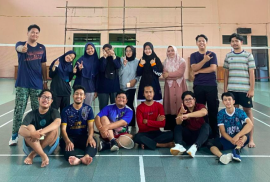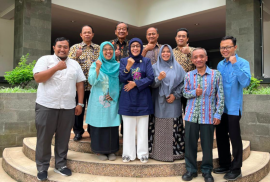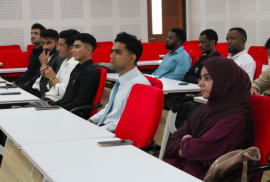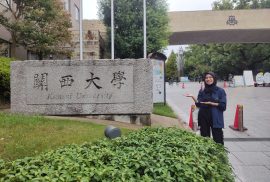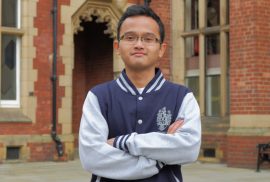Yogyakarta, 16/2/2025 – Middle Eastern Cultural Studies (KBTT) students at Universitas Gadjah Mada have launched a new initiative: a weekly exercise session held every Sunday morning. The inaugural event took place on Sunday, February 16, 2025, and was attended by several KBTT students. The goal of this initiative is to enhance both physical and mental health while fostering social connections among students. With a spirit of togetherness, this activity serves not only as a sports event but also as a way to create a healthier and more productive environment, in alignment with the Sustainable Development Goals (SDGs), particularly SDG 3, which focuses on health and well-being.
This regular sports activity is designed to provide long-term benefits for students. In addition to maintaining physical fitness, sports have been shown to improve concentration, reduce stress, and build self-confidence—important factors that support optimal academic achievement. Furthermore, this initiative aligns with global efforts to promote an active lifestyle as a preventive measure against various non-communicable diseases (NCDs).
By involving the student community, the program contributes to the formation of healthy habits that can last a lifetime. Beyond health benefits, this initiative also reflects KBTT’s commitment to sustainable development. Sports not only enhance individual health but also help build more inclusive and harmonious communities. By including this activity as a regular agenda, KBTT students aim to inspire other communities to adopt a healthy lifestyle, while also contributing to the achievement of Sustainable Development Goals (SDGs) by 2030.
This program demonstrates that small actions, such as weekly sports participation, can have a significant impact on global health and sustainable development.
[Public Relations Master of Middle East Faculty of Cultural Sciences FIB UGM, Nafila Azzahra]

